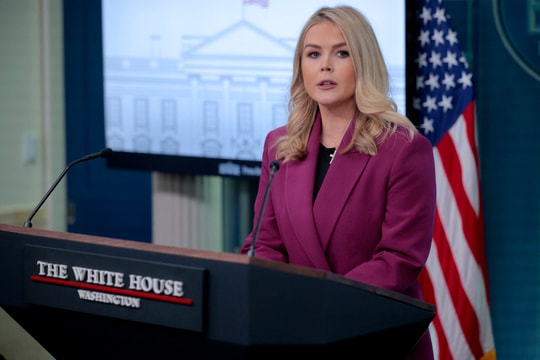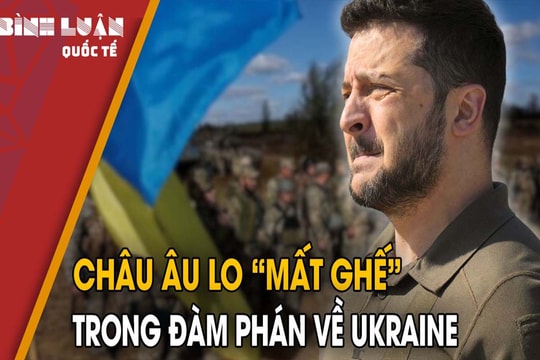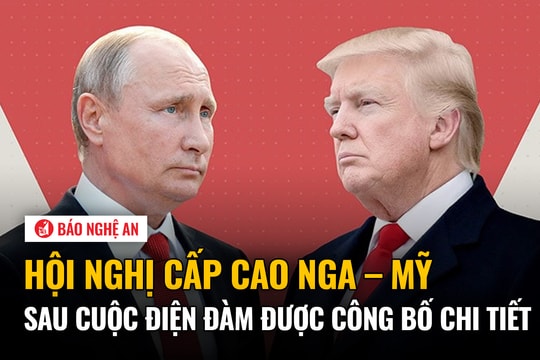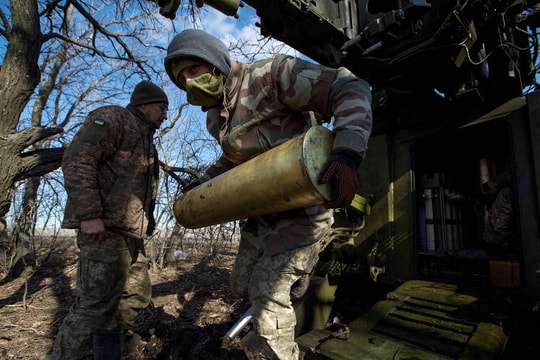Europe towards 'new era of security'
(Baonghean.vn) - After 3 days of work, the Munich Security Conference in Germany has concluded with a series of the hottest security issues around the world being discussed.
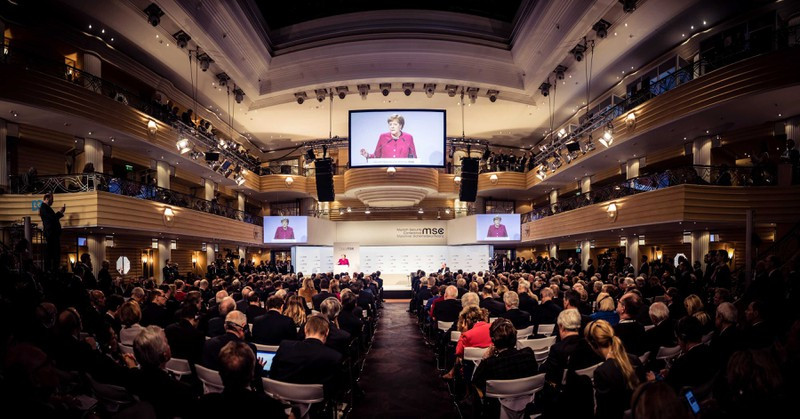 |
| Munich Security Conference. Photo: MSC |
The focus of special attention from the international community is the close coordination between France and Germany to promote the formation of a common European defense alliance - something that France and Germany hope will create a "new era of security" for Europe in the context of increasingly fractured relations between the US and Europe.
Find your own way
In his highly anticipated speech at the Munich Security Conference, US Secretary of State Mike Pompeo “boasted” of America’s number one position in the world, asserting that “America holds the key to making the world safer”. Mr. Mike Pompeo did not forget to cite evidence such as the US leading the military coalition against the self-proclaimed Islamic State (IS), eliminating leader Al Baghdadi or promoting the diplomatic pressure campaign against Iran to show that the US has not neglected its allies as rumored, and how the West under the leadership of the US has had successful campaigns.
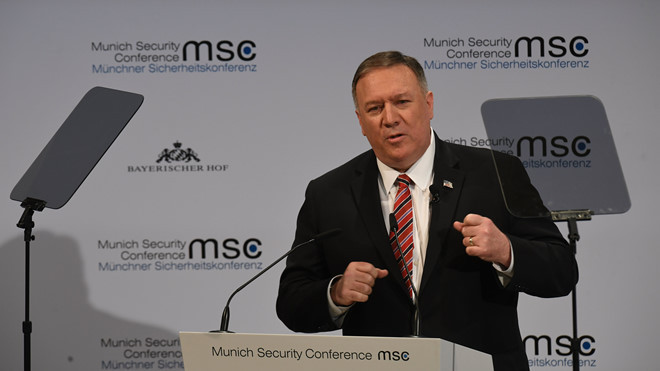 |
| US Secretary of State Mike Pompeo speaks at the Munich Security Conference on February 15. Photo: AFP |
But the speech, which detailed the US's position, did not impress some important figures in Europe, including French President Emmanuel Macron.
While the US prides itself on its ability to pressure Iran, Macron sees it as a deadlocked campaign that has left European countries unable to maintain their diplomatic policies around the 2015 Iran nuclear deal. From there, Mr. Emmacron argues that Europe cannot always follow the US lead, and must “act in a European way of thinking”, demonstrating European sovereignty with stronger, bolder capabilities on the international stage. And for a stronger Europe to defend itself, it needs new military power in a new security architecture - one that is not affected by Brexit and the departure of the UK.
One of Mr Macron's big ideas is that European partners, especially Germany, could share France's nuclear weapons instead of relying solely on the US "nuclear umbrella" as they have since the Cold War.
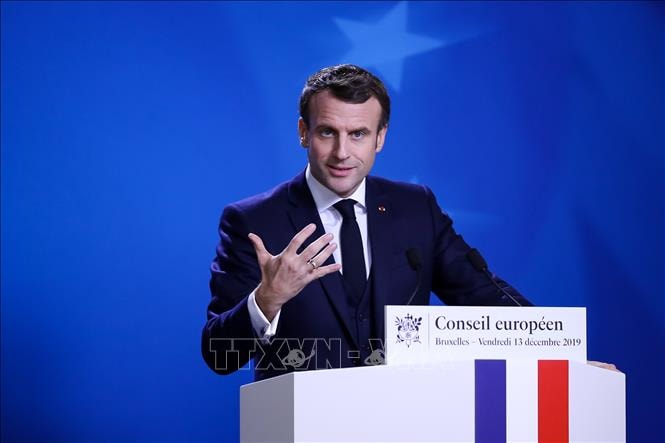 |
| French President Emmanuel Macron speaks at the Munich Security Conference. |
French President Emmanuel Macron’s idea of Europe strengthening its defense capabilities has been strongly supported by Germany. One of the reasons Germany has given is that President Donald Trump’s “America First” policy is forcing allies to “fight their own wars,” especially when Trump has repeatedly warned that Europe must take more responsibility for security issues.
German President Frank-Walter Steinmeier also bluntly accused the US policy of causing much instability, and that “every year, the world is further away from the goal of promoting international cooperation to bring peace to the world.” Meanwhile, German Foreign Minister Heiko Maas called for the establishment of a European defense union within the next 10 years, because Europe has common tools, has common interests, so there needs to be a mechanism to create common political will, thereby coordinating European defense and security policies more effectively on the international scale.
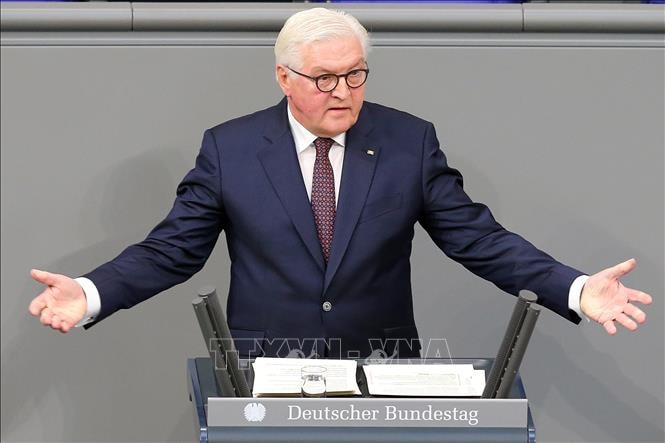 |
| German President Frank-Walter Steinmeier. Photo: AFP |
Germany also cited the concrete example of Europe being able to have its own military policy in the Strait of Hormuz, independent of the “maximum pressure” policy that the US is pursuing with Iran. France and Germany are confident that the two countries have made great progress in military cooperation in recent times, such as the Future Combat Air System (FCAS) and the Main Ground Combat System (MGCS), and that this “synergy” will help them lead new initiatives on a European scale.
Two pillars - one goal
However, a stronger Europe with a common defense force is an idea that makes NATO uneasy. NATO Secretary General Jens Stoltenberg stressed that Europe taking more responsibility for its own security does not mean Europe will do it alone without the United States.
According to Mr. Jens Stoltenberg, the effort to establish a common European army could erode the transatlantic relationship, weaken NATO's capabilities, and even cause divisions within Europe itself when members have different resources. Therefore, Europe needs to find a way to increase security responsibilities while still ensuring the unity of the 29 members of NATO.
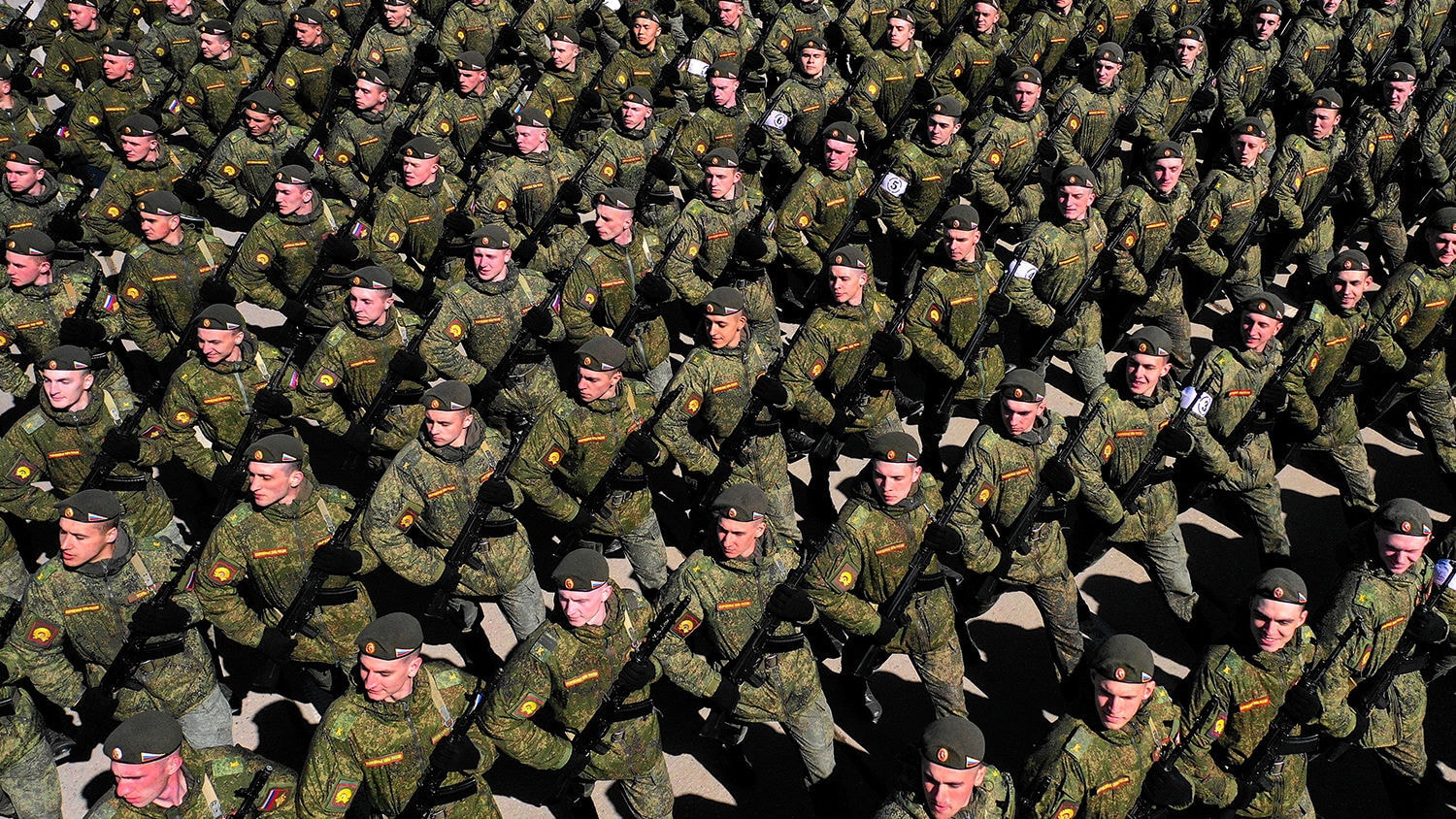 |
| NATO soldiers. |
In response to concerns about the division of NATO if Europe creates its own defense force, French President Emmanuel Macron affirmed that this is not a project against NATO or to replace NATO. The vision of building a common European army is to create another pillar of security for Europe besides the current pillar of NATO, and both pillars are aimed at a common goal of "ensuring European sovereignty".
For Europe, security responsibility is not simply about increasing defense spending to 2% of GDP as the US calls for, but about Europe's ability to be autonomous in urgent security issues, independent of US decisions. It is clear that although Europe and the US share many common values and have fought side by side in many major campaigns, the "two partners on both sides of the Atlantic" still have many different interests, leading to different approaches to many issues. Not only the Iranian nuclear issue that Secretary of State Mike Pompeo cited in his speech, but also a series of other issues such as relations with Russia, the war in Syria..., Europe needs to have the freedom to act through "European policies" rather than "transatlantic policies".
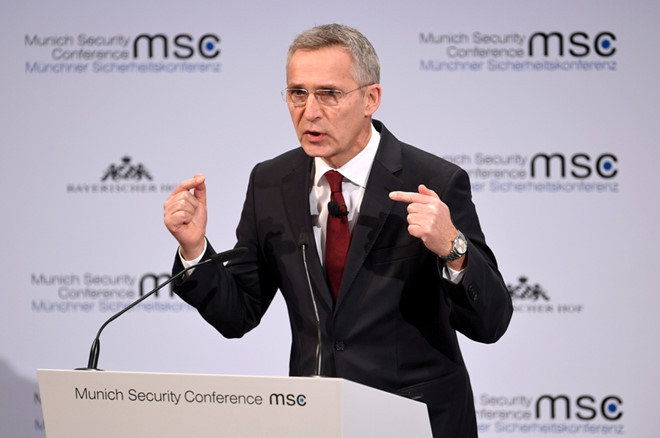 |
| NATO Secretary General Jens Stoltenberg speaks at the Munich Security Conference in Germany on February 15. Photo: Reuters |
French and German leaders have repeatedly cited President Donald Trump’s warning about withdrawing the US from NATO, considering it a “push” for Europe to take responsibility for its own security through a joint military force. But analysts say that even if Donald Trump withdraws this warning, or even if the US has a new leader to replace Donald Trump, France and Germany will still promote the plan to build a joint European force.
Because the underlying philosophy behind this plan is the desire for European independence and autonomy in global affairs, commensurate with its population and economic development. France currently has a developed arms industry, with its military participating in many independent campaigns without coordinating with the US, for example in Africa. France also maintains a fairly independent and straightforward policy even within the NATO military bloc. Meanwhile, Germany is still the leading economy of Europe. Analysts liken the combination of France and Germany to a combination of "muscle" and "wallet", an effective combination that can change the game on the global security playground.

